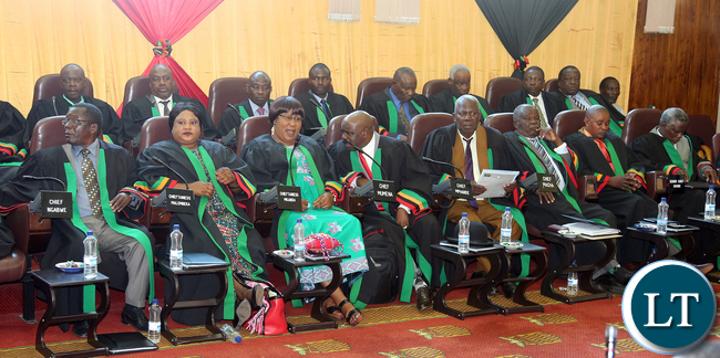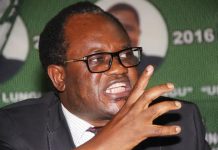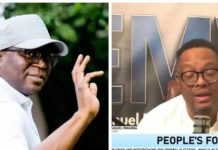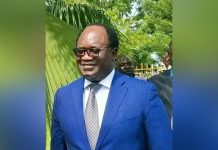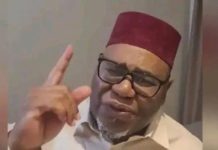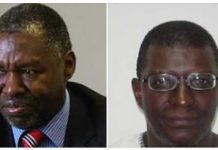Africa-Press – Zambia. Traditional rulers preside over a constituency that holds huge sway over Zambian politics and by extension its electoral dynamics. Simply put, they are the equivalent of a landlord while their various stakeholders are the tenants – sort of.
Their influence and authority over the traditional justice system is rock-solid, making them an easy target for various interest groups looking for a foothold in remote and parts of urban Zambia. Most important, the vast swaths of land in their custody and community-based projects under their supervision endears them to nefarious politicians and businessmen. While no law precludes chiefs from engaging in business activities, it’s on record that some of them – with savvy business acumen have and continue to abuse their authority for personal gratification.
Let’s be clear though. There is absolutely nothing untoward about chiefs accumulating wealth but there is everything wrong with flaunting their opulence while consigning their subordinates to poverty. In fact, some chiefs – in pursuit of material gain have been meddling in matters beyond their scope of responsibility. It’s this quest to accumulate excessive authority and wealth at all costs that’s endangering the traditional establishment’s reputation.
Hence the question, should chiefs be engaging in politics? By virtue of their responsibilities in their respective communities, they are in fact politicians – albeit with a mundane job title. For purposes of context, let’s perhaps re-phrase the question. Should they be engaging in mainstream politics? Chiefs have historically been the fulcrum to enhancing social and economic cohesion between their communities and the state hence their immersion into politics is nothing new.
During the UNIP era, then Chitimukulu (Mutale Chitampakwa) and the Litunga (Ilute Iyeta) – both deceased were co-opted into UNIP’s central committee, and they served their roles distinctively and retired with nothing to show for their service. After UNIP was deposed from power, Iyeta’s son Senior Chief Inyambo subsequently occupied a prominent role in UNIP – with his rise to fame being an accused in the infamous Zero option treason trial. Upon acquittal, he disappeared from public view never to be heard off. It is his incarceration by the MMD government that prompted civil society to start raising serious questions about the chief’s role in politics.
Nonetheless, it’s the behaviour of a few but the current generation of chiefs that is most concerning. Case in point, how does one describe Chief Mpezeni ka Jere’s political posture? It’s been nothing but embarrassing for a paramount chief of his stature. He’s consistently flaunted himself to the highest political bidder in return for material gain. After falling out with MMD and against the option of adopting a neutral political stand, he openly snubbed the opposition to align himself with the then PF government.
And the benefits of his alliance with the former governing party are telling in the opulence on display at Empendukeni – which is his palace in Mtenguleni – a sprawling village located just outside Chipata. The cars on show at this palace – one could well liken this to a car showroom. It’s despicable that a traditional ruler can amass such wealth and live the high life while surrounding villages lack basics such as clean piped water.
While Mpezeni has shrewdly used his position to his benefit, this has created a perception that his subjects in the province were sympathetic to the former governing party. Notwithstanding this crassness, the trouble with such transactional relationships is that subordinates often get caught up in political storms – most of which aren’t there making. For example, Mpezeni’s hostility to the incumbent government is well documented and now that his preferred candidate is out of power, how does he reconcile his relationship with the new dispensation?
Across the Zambezi, Chief Mukuni (Munokalya Siloka), of the Toka-Leya, is another political ethnic kingpin. Holding vast but arable lands in pristine coastal areas along the Zambezi River including equity interests in several Livingstone-based tourism ventures, Mukuni is reputed to be the wealthiest Zambian traditional ruler. Whispers allege that he is the only chief in southern Africa to own a limousine – which of course is just one of the many -in his collection of luxury cars – except the other guy in Swaziland owns a Mayback and a fleet of Rolls Royce to complement their collection of ego-boosting toys.
Crucially, Mukuni has an unsworn oath of allegiance to the incumbent President. As the de-facto paramount chief of the southern province, he holds sway over southern and to an extent the rural central province’s bantu botatwe ethnic voting bloc. Now that his party of choice is in the driving seat, it will be interesting to watch the potential growth in his portfolio of investments.
In the North, paramount chief Chitimukulu (Chinyanta Sosala) is another -ruler of worrying interest. After a drawn-out but disputed succession plan, it’s the immediate past President that acceded to his request to be recognized as the rightful heir to the Bemba throne. That Chitimukulu became the go-to person regarding the PF’s ambition to fortify the Muchinga and Northern province voting block is an open secret.
Let’s pause for reflection. Nkandu Luo as the PF’s Presidential running mate was a troubling choice to the PF’s Bemba monolith – this prompted Inonge Wina to make a last-minute sales pitch of Luo’s candidature to Chitimukulu. Whether the chief bought into this project is not the point of discussion but the fact that a Presidential running mate required a formal introduction to a paramount chief is cause for introspection. Is there a specific reason why Chitimukulu could not extend a similar courtesy to the opposition so it could also parade its candidates before his palace?
To their credit Mwata Kazembe (Paul Kanyembo) and the Litunga (Lubosi Imwiko) have seemingly kept their heads above the political fray – this despite their perceived links to the former governing party. While several traditional rulers spread across the country openly endorsed the former governing party and its Presidential candidate in the build-up to the recent elections, it’s likely that some may have been motivated by the material gain to make public their pronouncement.
By and large, the unintended consequence of convenient relations between the state and the traditional establishment is that it has festered tribalism to the extent that traditional leaders have now become the point men through which dubious relations are sustained. Therefore, the practice of parading before politicians while hiding a begging bowl must stop forthwith if chiefs were to retain a semblance of dignity and credibility.
Appreciating that they have a role to play in fostering national development, they can still discharge their responsibilities without mortgaging their authority and privilege. Even better, it might serve them well to completely steer out of politics altogether.
The author is an avid reader of political history and philosophy. He has a passionate dislike for tribalists. The only thing he supports is Kabwe Warriors and Liverpool. For feedback, contact [email protected]


